My back cramps from all the bending. My arms ache from holding rollers up over my head painting ORION'S bottom.
This is something I experienced.
It is something I can write about with authority.

6 am and 72 degrees.
My first novel involved traveling around the world. Lots of traveling.
Just one problem. I wrote about places I had never been and left out others I had.
And it showed.
It was blatantly obvious to my beta readers where I had been and where I hadn't.
Although we writers write fiction, we have to place strands of truth our readers recognize as authentic. I am not saying you can't write about what you don't know.
I am saying make sure you write about what you do.
Intertwine the two and do some research.
And not just from books.
If you're going to write about sailboats, you better have crewed in one. If you're going to write crime novels or legal thrillers. You better talk to policemen and lawyers that specialize in those areas.
Write what you know.
Write what you don't know and learn.
Bring a fresh perspective.
But that authenticity has got to be there.
Or you are a fraud.
And it will show.
So what do you think?
Have I opened a can of Lumbricus terrestris?
The floor is now open.





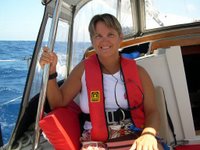



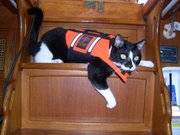
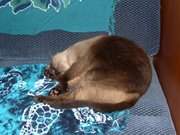


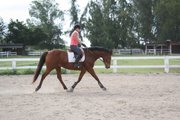
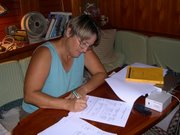

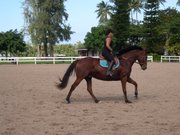
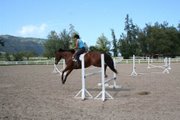
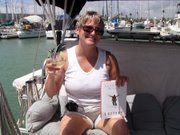
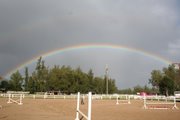
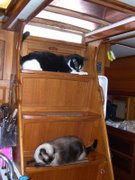




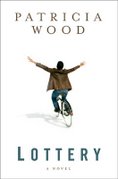
20 comments:
No arguments here.
I think you saved it by saying "Intertwine the two..."
I believe one can be accomplished with ease and the other requires more effort; that the marriage of both can be successful in a fictional story if you take extra time and care. This said from an author TRYING to write a scene where her character goes hot air ballooning, although I'm terrified of heights and have never been!
Of course I am not saying that SF or fantasy writers should have to experience space travel or portal entry...in some cases an imagination in hyperdrive works just as well!
I wrote about this in my MFA exam essay.
The trick is the selective use of specific, concrete details (be they internal or external to the characters). Science Fiction and Fantasy settings aren't "real," these stories' authors can't truly experience life on Mars or x thousand years in the future, etc.--so they use realistic, human details (esp. emotions) to make readers believe.
When she first read my novel, my editor was 100% convinced I'd lived in central Florida (where the story is set) even though I've spent maybe 48 hours there over 40 years' time.
Whereas she spent much of her childhood in that place.
Research was the key, but then I also had to be selective in which facts I used and how I used them.
It takes practice to get that authority, ask anyone who's written a "true" story that others didn't believe!
I have two unsold novels as practice!
Absolutely! In fact, we're posting about research this week over at The Writers' Group (www.writersgroupblog.blogspot.com)
When I read, it's partly for entertainment and partly to learn more about the greater world. If a writer has done her homework and blends the details into the narrative, it makes for a much richer story. Great advice, Pat.
Amy
I've been struggling with this lately and have finally concluded that I cannot write around the problem. Time to figure out how to inverview some small town policemen. I grew up in a small town, but (thankfully) didn't have any interaction with the cops.
Thanks for the thought-provoking posts.
My friend Holly's first book (The Tin Box) had a character with a very rare condition. She went to California (from Canada) to meet with a young man with the syndrome. Talking. Seeing. Using imagination and empathy to create.
I'm also an artist, and when I was in art school, my best teacher said to me, 'draw what you SEE'.
Once you draw what you see, you can draw what you imagine, but you first have to learn to draw what you really see.
I think writing is like that too.
Sam
While I agree in principle, there are times when one doesn't have experience. I find in those situations to fall back on the one thing people have in common: other people. In other words, I focus on character, trying to leave the things which I have no experience with in the reader's peripheral vision.
That being said, I am so-o-o-o-o jealous. I wanna go on a sailboat. I can't imagine how wonderful that must be.
Peace
I'm thinking that I'm going to have waaaay more fun painting than you will!
I'm going to equivocate and say, It Depends. You can write about something you don't know if you pick the right details. If you don't flub up. If you get the proper people giving you tid bits to add in that make you look smart. Or, you can write about something you know intimately and still look ignorant if you don't choose the right details for the writing.
I lived in San Francisco for a dozen years, and I based a novel on it (my infamous trunk novel.) I went back a couple of years ago and spent several days hiking all over town and looking for the specific sites I'd used. NONE WERE THERE! Ack! Ack! Ack!
You just can never know. It depends.
I think WP Kinsella got a dose of this when he tried to write about First Nations life without being a first nations person.
I do believe you can write what you don't know - but we have to get it right!
Good lesson learned and better sooner than later, when its in the press! :)
Pink
I agree. Maybe that is why I've spent so much time and effort creating the world in which my fantasy story is based. I'd still like to get over to Scotland or Ireland some time for a bit more research. The old castle ruins nestled in the rolling green hills are probably as close to my story as I'm going to get in this world!
Sometimes you can write about a place that's so authentic that the general public disbelieves it, because it's not how they assumed it to be.
I do also think that while things should ring authentic, that we're not writing a travelogue. We're writing fiction.
So if I write about a place that used to have a rope bridge, but now has a wooden foot bridge, but a rope bridge would be more cool, I can make up a story that the wooden footbridge was washed out in a fictional landslide 3 years ago...isn't that what fiction is all about?
I once read a book set in CT, which had as a location a place called Indian Leap, which happens to be fairly close to home. I did find myself distracted, because the Route numbers the author gave in the book, the time it would take to get to the MA border from here, and other little details didnt' make sense, since I LIVE here and know the area and back roads intimately.
But to a casual reader, the novel was set in CT, and as far as the general ambiance of CT, that rang true.
I always debate as to whether to put real places of business in my settings (usually a real town), but I usually choose to fictionalize (since I don't know the people that work there and don't want them thinking I'm really writing about them!).
My current WIP has some basis in a job I held, but should be overly fictionalized and changed enough that it would be unrecognizeable (I hope!).
I think research is so important, especially if you can't go to wherever you are writing about. I have a romance set in 16th century Basque. Hehe, can't go there. But I researched my tail off till I felt very sure that I could convince my readers that they had been there. I think that's the key. If you can write it so well, and so authentically, that the reader feels they have experienced . . . whatever it is . . . because of you, you've done it right. But you can't pull that kind of stuff out of mid-air.
Research, research, research. And if possible, travel.:)
Maprilynne
I write fantasy, so there are a lot of things that I can only learn through research. What I try to do is write the first draft, then note what professions or skills I need more accurate details on. In one story, I had a character who was a graphic designer. I kept the details pretty general, but I was lucky enough that a friend of mine who does graphic design read it. He could see I kinda had no idea idea what I was talking abuot, but he gave me even more information than I needed, which I think is always a nice place to be.
Be it experience or research, having more information than you need to put in a book is important, I think, because even if you only need one or two small details, what details you choose can reveal how knowledgeable about the subject you are. Which, it seems to me, makes fantasy more believable--that whole suspension of disbelief. (Which means I need to do a lot of research on boating in the 17th and 18th centuries at some point for me new story.)
And hi there.
This is such an interesting discussion -- I can see in Fantasy and SF you have to relate what is only imagined to something concrete -- like some of you have said find the right detail that smacks of authenticity and (I still believe) intertwine it.
When I wrote from my character's POV (he is both a male and termed "slow") -- I had to use my teaching and university work and yet relate it to my personal experience.
I'm with you, sister. There is so much rich experience to plumb if we just dig down a little and look for it. Isn't it funny how we can push aside some of the most potent experience just because we don't think they'll mean the same thing elsewhere. Maybe that's the magic of what we do. Change contexts, and our experience takes on a whole new life. But it still derives from our experience, nonetheless.
(Thanks for visiting my blog, too!)
What I truly love about writing is that it gives you the freedom to be yourself on paper, while at the same time gives you permission to try, or learn, something entirely new.
My first manuscript was a mirror of me and my experiences, but my official debut novel, GOOD THINGS, has characters and experiences that make me go, "Hey, that sounds pretty cool!" I definitely took some creative license (i.e. I created a town in Washington from scratch) but I also grounded it in what was authentic and accurate for the region. I think this is one reason why I prefer writing fiction to nonfiction - I never know where I'll end up or who I'll meet!
Post a Comment